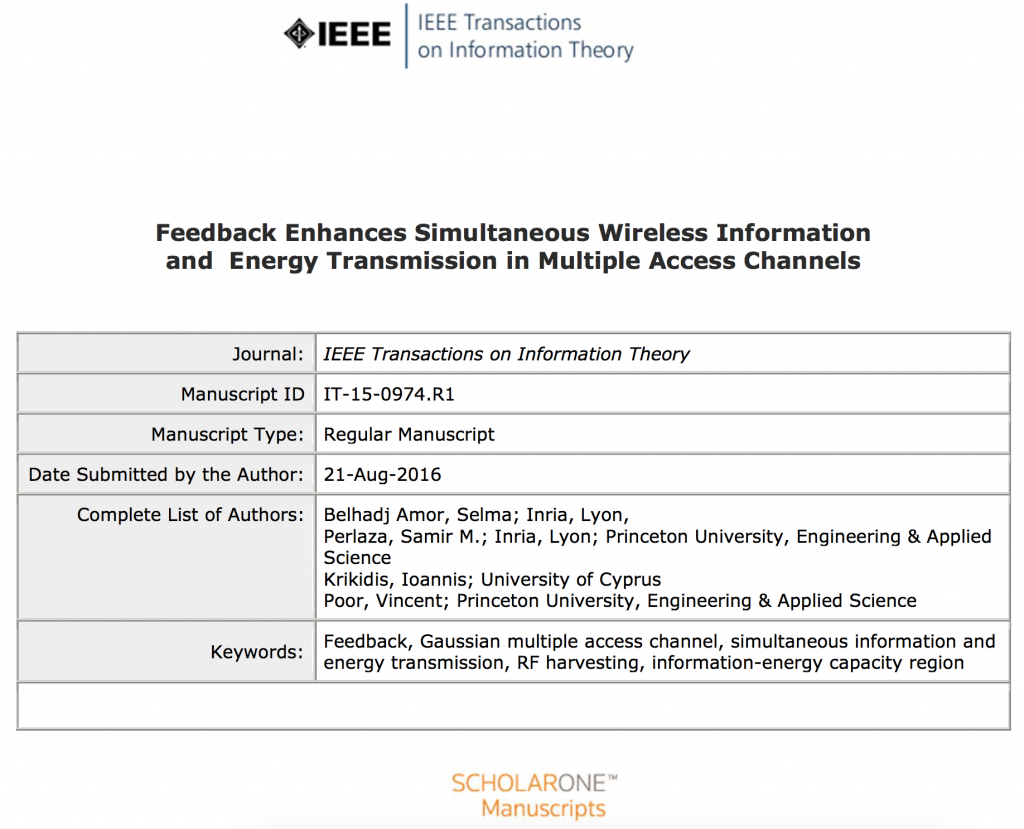In this paper, the fundamental limits of simultaneous information and energy transmission in the two-user Gaussian multiple access channel (G-MAC) with and without feedback are fully characterized. More specifically, all the achievable information and energy transmission rates (in bits per channel use and energy-units per channel use, respectively) are identified. In the case without feedback, an achievability scheme based on power-splitting and successive interference cancelation is shown to be optimal. Alternatively, in the case with feedback (G-MAC-F), a simple yet optimal achievability scheme based on power-splitting and Ozarow’s capacity achieving scheme is presented. Two of the most important observations in this work are: (a) The information-energy capacity region of the G-MAC without feedback can be a proper subset of the information-energy capacity region of the G-MAC-F and (b) Feedback can at most double the energy rate when the information transmission rate is kept fixed at the sum-capacity of the G-MAC.
Privacy Overview
This website uses cookies so that we can provide you with the best user experience possible. Cookie information is stored in your browser and performs functions such as recognising you when you return to our website and helping our team to understand which sections of the website you find most interesting and useful.
Strictly Necessary Cookies
Strictly Necessary Cookie should be enabled at all times so that we can save your preferences for cookie settings.
If you disable this cookie, we will not be able to save your preferences. This means that every time you visit this website you will need to enable or disable cookies again.

